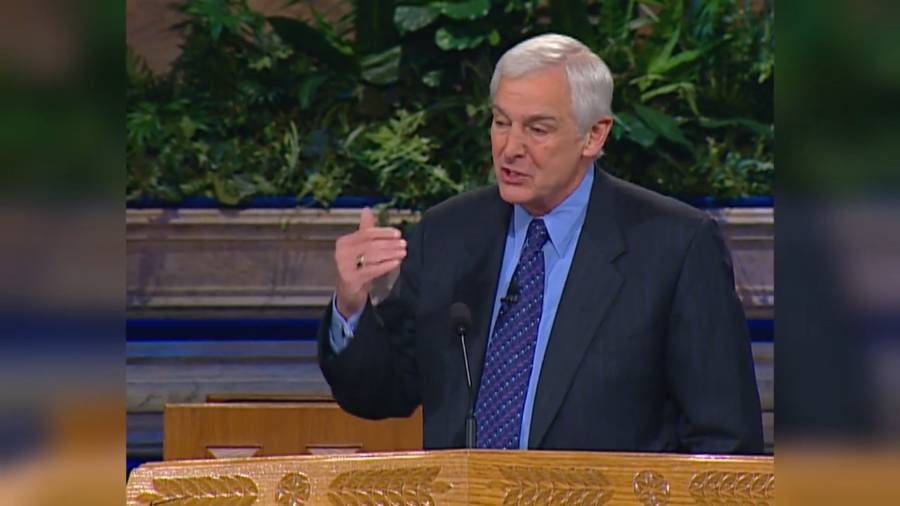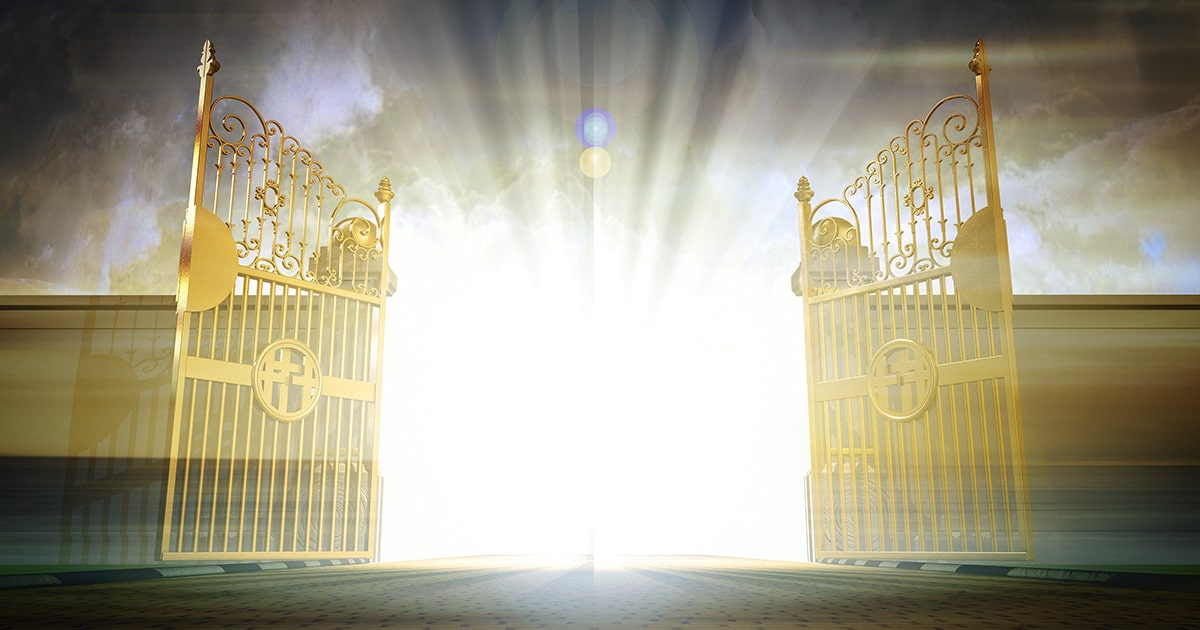
It started in California in the 1980s with an initiative to increase the self–esteem of underprivileged kids: awarding participation trophies just for showing up. In addition to awarding trophies to winners, every participant was given a trophy for participating in the activity.
The Bible doesn’t say anything about participation rewards—rewards just for being a Christian. Rather, heavenly rewards will be based on motivation. Did we serve Christ on earth for our own glory or for His? Were we motivated by the praise of men or for the praise of God in heaven? The apostle Paul used the metaphor of a building to compare the two motivations. A house built of “gold, silver, [and] precious stones” will be rewarded; a house built of “wood, hay, [and] straw” will be consumed by the fire of Christ’s judgment (1 Corinthians 3:11–15). There is no reward mentioned just for participating as a Christian in God’s kingdom.
Every day is another day of building our spiritual house, a day that cannot be undone. Let’s look at eight heavenly principles that can change the way we serve Christ for His glory today.
#1: Thinking About Heaven Gives Us Hope and Purpose
What difference does heaven make? Consider two people who lived across the street from each other. One man thought about heaven all the time—especially when the setting sun turned the sky into a painting. On such evenings, he would sit on his porch and think about heaven. He followed the Bible’s directive to “set [his] mind on things above” by studying the topic of heaven in the Bible (Colossians 3:1–4), and he often went to bed visualizing the scenes recorded in Revelation 21 and 22 about heavenly Zion. But the man’s neighbor never thought of heaven. He busied himself with his work, his family, his hobbies, and his golf game—never pausing to think about his eternal future.
These two men lived on the same street but in different worlds. One man’s interest was on things below; the other man’s mind was on things above.
Which of the two men lived most happily? Which was the most productive? Which busied himself with optimistic works of goodness? Which lived with promise, perseverance, and purpose? It’s not hard to guess. Those who think the most about heaven do the greatest work on earth. Keeping heaven on our minds keeps hope in our hearts and the Gospel in our mouths.
#2: Thinking About Heaven Impacts Our Worship
In talking about heaven, theologian N. T. Wright has written, “You must therefore live, in the present, as far as possible like you will live in the future.”1 If we are going to be holy in heaven, we should be holy now. If we are going to be loving in heaven, we should be loving now. And, if we are going to worship God in heaven, we should worship God now.
There is no doubt that worship is the central theme of life in God’s presence. In a vision, Isaiah saw “the Lord sitting on a throne, high and lifted up, and the train of His robe filled the temple.” And the seraphim cried, “Holy, holy, holy is the LORD of hosts; the whole earth is full of His glory!” (Isaiah 6:1–4). And the apostle John saw worship in heaven numerous times in his vision: Revelation 4:8–11; 5:8–14; 7:11–12; 11:15–18; 15:1–4; 16:5–7; 19:1–8. So if worship is going to be the theme of all eternity, it behooves us to worship now as we will worship then.
Think about the ways you can incorporate worship into your eternal life in Christ: personally, as a family, in your small group or church. Worship today as you will worship forever.
#3: Thinking About Heaven Brings Contentment
A newspaper ran a real estate article about a three–story, 2,800 square feet, 1.2 million–dollar home on the Gulf Coast near Corpus Christi, Texas. The pictures were fabulous. The master suite on the top floor contained a private covered porch. Downstairs, the kitchen was perfectly designed. Every window had stunning views, and every room was filled with the newest conveniences. This house, announced the headline, was simply “Three Floors of Heaven.”
It’s not surprising for a reporter to describe a house in such terms because God has placed heaven in our hearts. According to Ecclesiastes 3:11, God has given us an intuitive desire for heaven. Everyone either wants to go to heaven one day, or they are trying to create heaven right now. Our society has long sought heaven on earth—a utopia. This desire is reflected in our houses and possessions. But nothing can compare with the home God is preparing for His people.
We all want a pleasant environment. But don’t try harder than you should to create heaven on earth. Jesus is preparing a place for you right now. Serve Him faithfully as He leads you, and await the glories to be revealed.
#4: Thinking About Heaven Alleviates Our Fear of Death
Richard and Catherine Dotson, both born in 1797, were married for fifty years. Catherine died in 1877 and Richard in 1884. They were buried in the family cemetery in Savannah, Georgia. During World War II, an airport was built nearby; and after the war, a runway was built through the cemetery. Most of the graves were moved, but the Dotson family refused permission for their ancestors to be exhumed. So the runway was built over their graves, and markers were placed in the runway honoring their remains. That’s why Savannah has the only airport in the world with grave markers embedded in its runway.
On reflection, we can see the appropriateness of that. For Christians, our cemetery plots are not our final resting places. They are the runways or launching pads from which we’ll be caught heavenward when Christ returns. The resurrection of the body will be sudden, literal, physical, and glorious. We’ll be snatched up into the clouds to meet the Lord in the air.
Without death, there would be no resurrection. That’s why death holds no terror for the Christian. We’re living on a higher plane.
#5: Thinking About Heaven Gives Us the Perspective to Persevere
By studying the biblical truths of this place called heaven, populated with the saints of all the ages and vibrantly prepared for our renewed bodies, we gain a godly toughness and a right perspective for dealing with life on earth. Think of our inheritance there and the rewards awaiting distribution. Think of the new heaven, the new earth, and the city of New Jerusalem. When we read portions of Scripture about the Millennium, we can visualize the pictures given by the biblical authors and anticipate this remarkable thousand–year prelude to glory. When we grieve over the passing of a child, we can think of them in heaven. When tragedy strikes or death comes, we can focus our mind on the great passages that take the sting out of death and turn it into a blessing for God’s children. Armed with all these truths, we can be tough–minded optimists.
In doing so, we will develop a godly Christian toughness that will carry us through thick and thin. We will maintain our purity, claim God’s promises, find our purpose in life, hold firmly to the profession of our faith, and make fresh progress in our growth as a follower of Christ.
#6: Thinking About Heaven Increases Our Awareness of God’s Abundance
The widow saw a handful of flour and a little oil. Peter saw the crashing waves. Moses and the Israelites saw the sea before them and the Egyptian army rushing toward them. The disciples saw five loaves and two fish. What challenges and circumstances do you see? When we only depend on our eyesight to show us reality, we forget the invisible. We forget God.
If we could see God, His angels, and His vast reach and power—we would never fear. If we could see His abundance, compassion, and kindness, we would never hoard and give in to thinking there was not enough. Not only has God promised to be with us each day on earth, but He has also prepared a place for us in heaven. Relaxing into this promise brings peace and contentment. God not only provides the minimum for us but delights in giving us more so that we can share with others. The man who welcomed the children, forgave Peter’s denial, and fed the five thousand gently beckons us to Himself. We too can have His abundance for every good work.
“And God is able to make all grace abound toward you, that you, always having all sufficiency in all things, may have an abundance for every good work” (2 Corinthians 9:8).
#7: Thinking About Heaven Prepares Us to Receive Special Awards
Everyone who accepts Jesus Christ as their Lord and Savior can look forward to the glories of heaven, but the Bible clearly lists at least five crowns that will be awarded to those who serve Him faithfully in this life.
The first crown is the Victor’s Crown. This crown will be awarded for self–discipline (1 Corinthians 9:25–27).
The second is the Crown of Rejoicing, which will be given to those who have led others to Christ (1 Thessalonians 2:19).
The third is the Crown of Righteousness, which will be given to those who have a longing for the Lord Jesus—who look for Jesus’ return (2 Timothy 4:8).
The fourth is the Crown of Life, placed upon those who have endured and triumphed over trial and temptation and persecution, even to the point of martyrdom (James 1:12; Revelation 2:10).
The fifth is the Crown of Glory, awarded to the faithful shepherds of the people of God and to Christian leaders (1 Peter 5:4).
These are not the only rewards that will be distributed in heaven. But above all, the Lord Himself is our chief reward. No crown could ever compare to the splendor of seeing our Lord and Savior face to face.
#8: Thinking About Heaven Excites Our Imagination and Energizes Our Evangelism
In the mid–1850s, the Christian painter Frederic Church traveled to remote areas of South America where few North Americans ventured before that time. He took sketches all along the way, and when he returned home, he painted a masterpiece—The Heart of the Andes. Church’s painting included a simple wooden cross in the foreground. The response to this massive landscape was immediate.
Mr. Church erected his painting in a giant canvas tent in New York City and charged 25 cents to see it. By looking at that painting, viewers felt they were getting a glimpse of a faraway land that excited their imaginations. Today it hangs in New York’s famed Metropolitan Museum of Art.
When we study the subject of heaven in the Bible, we’re looking at the pictures God has painted for us of the land to which we’re going. The more we study that land, the more we’ll begin behaving now like its citizens. Those who focus their gaze on heaven become more zealous, more loving, more industrious, and more evangelistic. The air of that place begins to get into our spiritual lungs, and we become tough–minded optimists.
Let’s not settle for less than God’s best. Let’s live like citizens of heaven!
1N. T. Wright, Surprised by Scripture: Engaging Contemporary Issues (New York: HarperOne, 2014), 95.
















